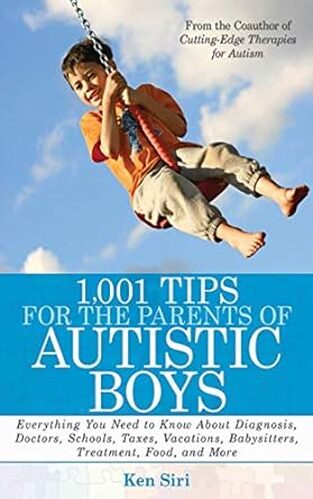AUTISM ~ How do we learn about, understand, and face autism? How can we become ‘empowered’?
< My Thoughts > Here are some ways which may help –
How to get the attention that you need?
Go through your child’s pediatrician or physician. Contact your provider and express your concerns about your child’s development, and need a developmental screening. If your child’s pediatrician identifies areas of concern during the screening process, they should refer you to a trained specialist (developmental pediatrician, neurologist).
Identify the greatest issue which needs immediate attention and/or intervention. What behavior or lack thereof, is putting your child and/or family at risk?
< My Thoughts > “…greatest issue…”
Use your technology to record those moments which provide examples of your child’s concerning behavior. It is difficult for someone to deny or excuse what they are seeing with their own eyes. Be ready to explain how this behavior is risky for child and/or the family, and provide documentation of how often and when the behavior happens.
Early Age Identification, under 3 years of age, for ASD is considered necessary, so that evidence-based interventions can begin as early as possible. Within the participants in this group, they found ASD prevalence to be higher among boys than girls; and, a higher prevalence among non-Hispanic and White children; than among Hispanic or Black children. From: Luker (2024); Unit 1 – Chapters 1, 2, & 3.
- Abdominal pain
- Aggression
- Anxiety / Irritability
- Attention Deficit Hyperactivity Disorder (ADHD)
- Feeding / Eating
- Gastrointestinal / bowel
- Skill Regression
- Seizures
- Sleep
< My Thoughts > “…search for a similar program in your area.”
Most countries and providences have some form of social programs to serve their constituents. Seek advice from your Healthcare Professionals.
Your State’s Child Find Program
· Under federal law, public schools must look for, find, and evaluate kids who need special education. This is called Child Find, and it covers kids from birth through age 21. It applies to all kids, including those who are homeschooled or in private schools, plus kids who are migrants or without homes.
The Centers for Disease Control & Prevention (CDC) declares that “developmental screening for autism can be completed by a number of professionals in health care, community, and school settings.’ Suggesting that families, depending on the child’s age, start with the current healthcare provider or school professionals. Luker, S. (2024); UNIT 2 – Why Is It Autism?
< My Thoughts > “…depending on…”
Many autistic individuals require more support than others in specific areas. Help depends on evidence of disability for its final decisions.
What is considered good evidence of disability?Providing good evidence of disability will help us make a decision about your eligibility for the National Disability Insurance Scheme (NDIS).
Good evidence is:
- recent
- completed by a treating health professional who is relevant to your primary disability
- confirms your primary disability
- confirms the impacts of your disability on the different areas of your life
- describes previous treatments and outcomes
- describes future treatment options and expected outcomes of those treatments.
Retrieved online from –
Providing evidence of your disability
National Disability Insurance Scheme (NDIS)
https://www.ndis.gov.au › how-apply › providing-evide...
Please find the following on my website MENU for my FREE ASD Book on autism: Know Autism – Know Your Child: with < My Thoughts > by Sara Luker –
UNIT 6 – Where to Look for Resources?
UNIT 6 – CHAPTER 1 – Networking & Support
UNIT 6 – CHAPTER 1 – INTRODUCTION
UNIT 6 – CHAPTER 1 – Networking
a. Autism CARES Act of 2019
b. Government Websites
CHAPTER 1 – Support
UNIT 6 – CHAPTER 2 – Insurance & Intervention
UNIT 6 – CHAPTER 2 – INTRODUCTION
UNIT 6 – CHAPTER 3 – Laws ~ Federal, State, & Local UNIT 6 – CHAPTER 3 – INTRODUCTION
a. Individualized Education Plan (IEP)
b. Autism Education & Anti-Bullying Policies
UNIT 6 CHAPTER 4 – Where to Look for Resources?
UNIT 6 CHAPTER 4 – CHAPTER 4 – FUTURE CHALLENGES UNIT 6 CHAPTER 4 – INTRODUCTION
a. 40 Something
b. Geriatrics (Resources & get on ‘waiting lists’, Finances. Individual’s Insurance, Health Care, Colleges, Adult Day Care, Adult Group Homes, Assisted Living, Nursing Facilities, Hospice/Palliative.)
UNIT 6 CHAPTER 4 – REFERENCES
Unit 6 CHAPTER 4 – APPENDICES – Nurse Tips for Dealing with Autistic Patients; Guardianship
101 Tips for the Parents of Boys with Autism & 1,001 Tips for the Parents of Autistic Boys by Ken Siri; eBooks 2015. Extended Review and LINK on my website (Find on MENU).
5%/1,001 It’s not your fault your child has autism…it never was…and it never will be.
4%/1,001 Do not allow yourself to journey down the road marked CURE. Instead, travel down the road toward RECOVERY.”
7%/1,001 Autism is a spectrum, and all the children with autism are different. What works for one child may not work for another. For this reason, some of these tips may appear to be contradictory.
5%/1,001 Pay attention to any symptoms at any age. Any loss of any language or social skills at any age. If you have any inkling that your child’s development is off, it should be handled at the youngest possible age, as we now know that early intervention leads to better outcomes. Children who are at risk (particularly those children of parents with auto immune conditions or those with siblings on the autism spectrum) should be watched very closely for any of the known symptoms.
5%/1,001 If your pediatrician isn’t seeing what you see, don’t wait for him/her to come around. If your child is under the age of three, contact your state’s early childhood intervention program and ask for an evaluation. You can also visit a developmental pediatrician or clinical psychologist trained in diagnosing ASD.
5%/1,001 Don’t ignore your inner parent voice. If you think professionals are off-base, don’t dismiss your instinct because you’re “just” a parent, and he/she is a highly esteemed professional. Get another opinion.
< My Thoughts > “…ask for an evaluation.”
These books have soooo much useful information. And, it’s not just for boys with autism…but girls, too!
Reference:
Luker, S. (2024); Know Autism, Know Your Child with < My Thoughts > by Sara Luker; Retrieved online from – www.sarasautismsite.com
End of DAY THREE. Note: Excerpts from the book – (13% indicates location in the Kindle version of the eBook, instead of page numbers).
Sharing of my website and BLOG Comments welcomed.
Regards,
Sara Luker


 RSS Feed
RSS Feed